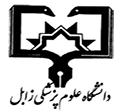(2022) Gender Interaction in Association of Perceived Social Support and Health-Related Quality of Life Among Iranian Older People: A Cross-sectional Survey. Health Promotion Perspectives. pp. 56-66. ISSN 2228-6497
Full text not available from this repository.
Abstract
Background: The purpose of this study was to examine the relationship between perceived social support (PSS) and dimensions of health-related quality of life (HRQoL) and to examine possible gender interaction in the mentioned associations. Methods: A community-based cross-sectional study conducted among 644 participants over the age of 60 years old in Tehran. The data were collected through face-to-face interviews conducted in their own homes, by using a structured multi-sectional questionnaire. The version 1 of the SF-12 scale was used to measure the HRQoL, consisting of two summary measures; PCS (Physical Component Score) and MCS (Mental Component Score). The Persian version of the Social Provisions Scale (SPS) was used to measure PSS. Four multilevel mixed-effects logistic regression models were used to examine the associations. Results: Older people with poor SPS score were 1.8 times more likely to be in the worst quartile of the MCS distribution (CI = 1.11-2.93, P = 0.021), and twice as likely to be in the worst quartile of the PCS distribution (CI = 1.18-3.54, P = 0.011). We found strong evidence to support the hypothesis of gender interaction in the association between economic status and PCS Men: OR 0.28, CI (0.11-0.71); Women: OR 1.00, CI (0.53-1.88); P of Interaction 0.021, and a borderline evidence for gender interaction in the association between physical activity and PCS Men: OR 5.32, CI (2.14-13.20); Women: OR 1.80, CI (0.82-3.93); P of Interaction 0.051. Conclusions: Social support could be regarded as one of the main social determinants affecting HRQoL among older people. Men with poor economic status and poor physical activity, compared to women, are more likely to suffer from poor quality of life, thus men should be prioritized in financial support and life style and physical activity interventions.
| Item Type: | Article |
|---|---|
| Keywords: | Social support Quality of life Aged Gender identity depressive symptoms population Public, Environmental & Occupational Health |
| Divisions: | |
| Page Range: | pp. 56-66 |
| Journal or Publication Title: | Health Promotion Perspectives |
| Volume: | 12 |
| Number: | 1 |
| Identification Number: | 10.34172/hpp.2022.08 |
| ISSN: | 2228-6497 |
| Depositing User: | مهندس مهدی شریفی |
| URI: | http://eprints.zbmu.ac.ir/id/eprint/4205 |
Actions (login required)
 |
View Item |



